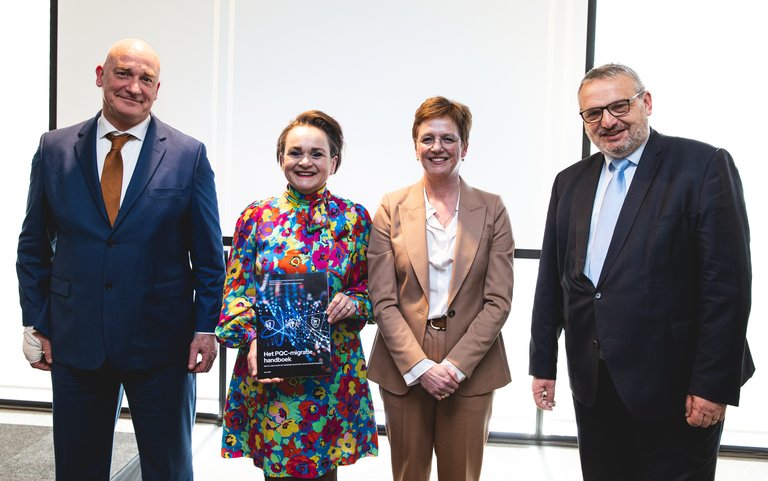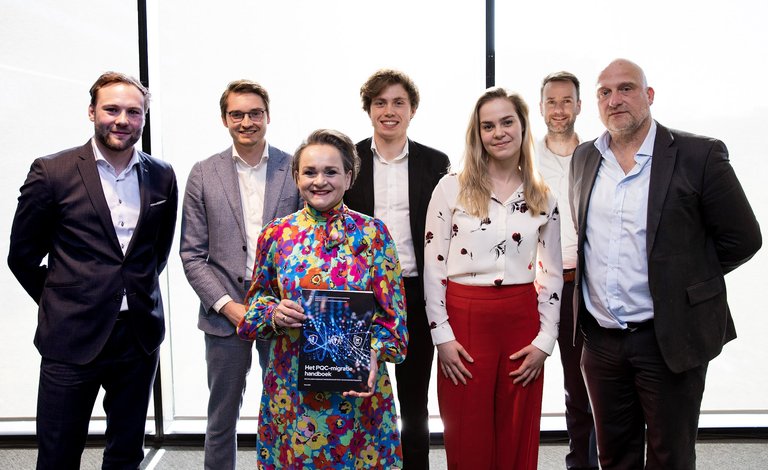Experts consider the chance small but real that by 2030 quantum computers will be powerful enough to break current cryptographic standards. Therefore, it is important that organizations start migrating to a quantum-safe environment soon. On 4 April 2023, the General Intelligence and Security Service (AIVD), TNO and Centrum Wiskunde & Informatica (CWI) published a handbook for the migration to quantum-secure communications. The handbook is intended for the Dutch government, businesses, vital sectors and knowledge institutions that work with important information that is being encrypted, such as trade secrets. Alexandra van Huffelen, State Secretary for Kingdom Relations and Digitalization, was presented with the first copy during a meeting in The Hague on the migration to post-quantum cryptography.
Migration requires customization
The PQC Migration Handbook provides guidance on how to properly prepare and execute the transition to quantum-secure communication using post-quantum cryptography (PQC).PQC is a collection of approved encryption methods that, unlike current encryption, cannot be broken by quantum computers. The handbook helps organizations to identify risks and provides concrete steps to work on a migration strategy. There is not one strategy for all organizations, as not every organization has the same interests and ICT structure. For example, because organizations work with different types of data or have a different degree of confidentiality.


